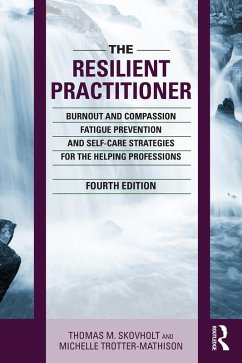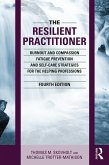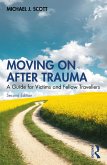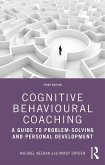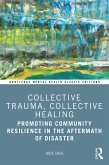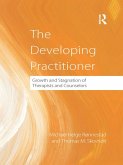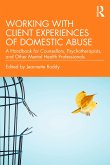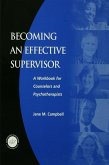The new edition builds on the strengths of the earlier editions and incorporates the lived experience of practitioners in the helping, caring, and relationship-intense fields. Readers will find new material in the Architecture of Resilience chapter, a self-care action plan that incorporates SMART goals to increase goal-setting success and a focus on both individual responsibility and organizational responsibility for burnout prevention and the development of resilience.
The new edition also includes self-reflection exercises in each chapter, a resiliency inventory for practitioners, a strong focus on research, and an accessible writing style. The authors continue to chart a hopeful path for practitioners, one that allows for a high level of caring for others in the helping professions while also artfully caring for oneself.
Dieser Download kann aus rechtlichen Gründen nur mit Rechnungsadresse in A, B, BG, CY, CZ, D, DK, EW, E, FIN, F, GR, HR, H, IRL, I, LT, L, LR, M, NL, PL, P, R, S, SLO, SK ausgeliefert werden.
Samuel T. Gladding, PhD, professor of counseling at Wake Forest University
"In this masterful, insightful, and scholarly third edition, Skovholt and Trotter-Mathison have demonstrated again that they are leaders in the field of burnout and self-care. The have brought theory and practice together in an engaging and personal approach. Their thoughtful exercises and examples no doubt will save a number of careers from derailment."
Jeffrey P. Prince, PhD, director of counseling and psychological services at the University of California, Berkeley
"This book is a landmark contribution to the literature on practitioner well-being. It offers all practitioners in the helping professions an approach to finding a balance of other-care and self-care for sustained resilience and effective practice. Novice and seasoned practitioners alike will benefit immensely from this classic book."
Dianne Salvador, psychologist, and Rachel Collings, physician, Queensland, Australia, authors of Mentoring Doctors
"Across all stages of their careers, those in the caring professions will find that the third edition of this classic book remains a vital source of professional wisdom and personal nourishment. It helps fill in the many missing aspects of most professional training and practice. Don't miss it!"
Glenn E. Good, PhD, dean and professor of human development and organizational studies in education at the University of Florida
"This book should be required reading for all in the helping professions. Skovholt and Trotter-Mathison identify struggles with which any one of us might relate. They use powerful examples and provide a structure for reflection that would be a valuable resources to all colleagues in nursing and other professions who routinely cope with the stresses of caring."
Lori Brown, PhD, RN, assistant professor at Washington State University
"My best read this far about the personal in the professional in relationship-intense professions. Relevant across disciplines and cultures. In a warmhearted manner, the authors offer well-founded and thought-provoking insights, benefitting both the novice and the experienced professional. An invaluable companion for any relational worker aiming for the long run!"
Kjetil Moen, chaplain, researcher, and lecturer at Stavanger University Hospital, Norway
"As a practitioner in private practice, I frequently turn to this book for reminders of how to persist despite the demands of psychologically taxing work. As a professor and supervisor, I frequently refer students to this book so that they can learn how to engage in self-care in a systematic, thoughtful way. The Resilient Practitioner should be required reading for students and should be on the bookshelf of all practitioners in the helping fields such as health care, education, and social work."
Julie Koch, PhD, associate professor and training director in the counseling psychology doctoral program at Oklahoma State University
"The authors explore this phenomenon in depth, offering compassion for the challenges faced by the professional carer (which they take to include teachers, clergy and health professionals in general, as well as counsellors and therapists) and a wealth of tips, techniques and advice to help them steer a course through professional life without succumbing to burnout."
-Bernadette Lynch, M.A., Trainer in Mental Health

